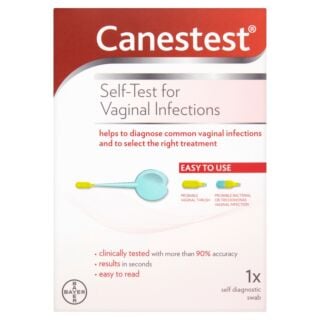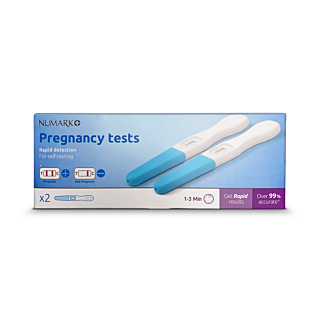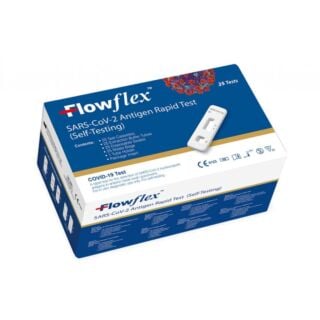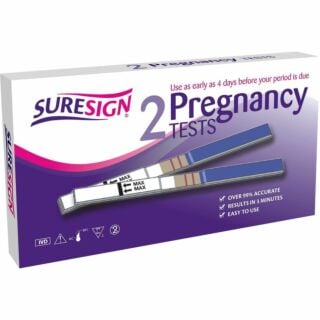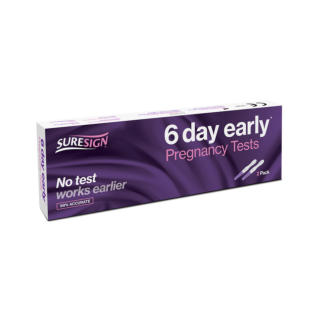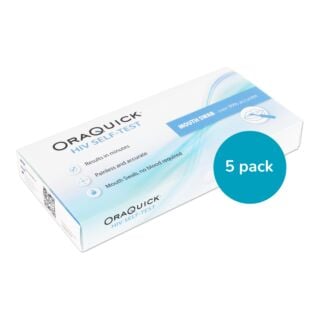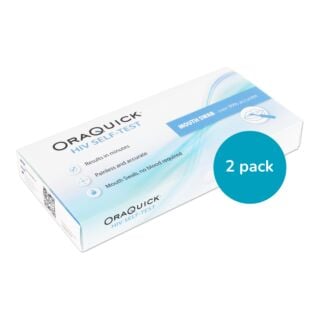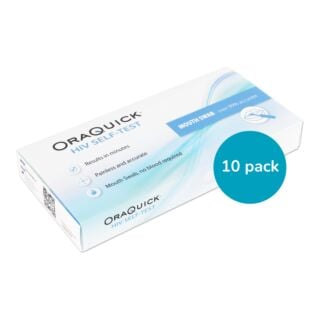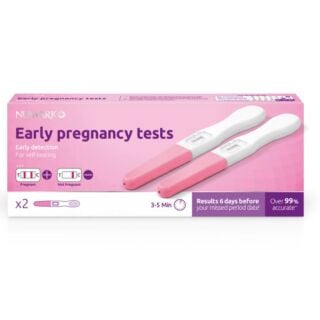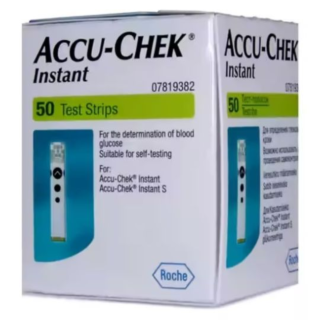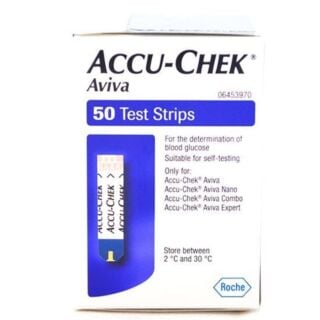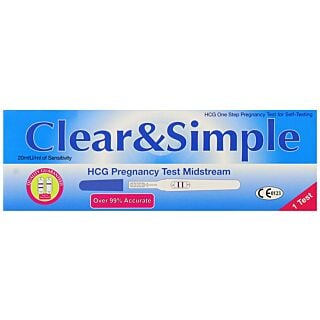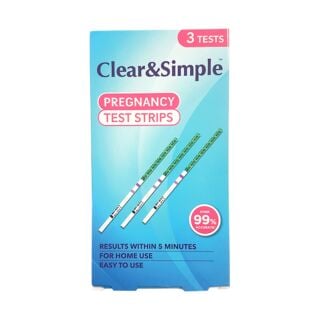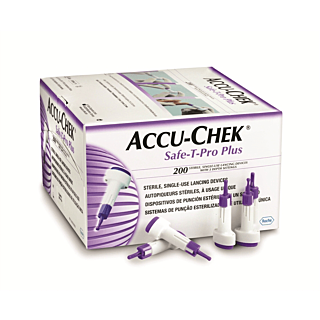Home Testing
Want to take your health into your own hands? Thanks to home testing, now you can. Home testing kits enable you to take your own sample and either complete a test at home (e.g. an at home UTI test) or send it to a lab for analysis (e.g. a HIV screening test kit). This means you can get fast results, when you need them. … Read More See less
Whether you don’t have time to visit your GP for testing, want to avoid an embarrassing consultation, or just want to find out your health status as soon as possible, knowledge is power. Having a greater awareness of your health status can enable you to make any changes you need to prioritise your wellbeing and can also give you the sign you need to make that appointment with your GP.
For that reason, home testing is a gateway to better healthcare. But what conditions can you test for at home? How early can you take a pregnancy test? And what does a vaginal swab test for? Let’s find out.
Home testing kits from Chemist4U
STI testing
Sexually transmitted infections (STIs) are conditions that are passed on through sexual activity.1 You may be concerned that you have an STI if you’ve recently had sex without using contraception or if you’re experiencing symptoms such as:2
- Unusual discharge from your vagina, penis or anus
- Pain when you pee
- New lumps around your genitals or anus
- A rash
- Unusual vaginal bleeding
- Itchy genitals or anus
- Blisters, sores or warts around and in your genitals, anus, mouth or throat
Different types of STIs include:1,2
- Chlamydia
- Gonorrhoea (clap)
- Trichomoniasis
- Genital warts
- Genital herpes
- Pubic lice (crabs)
- Scabies
- Syphilis
- Human papillomavirus (HPV)
- HIV
STI tests, such as a HIV test kit, can currently test for chlamydia, gonorrhoea, HIV, trichomoniasis and syphilis.3,4 They come with clear instructions to enable you to take a sample yourself, seal it securely and post it to a laboratory. Depending on what you’re being tested for, they will direct you to:4
- Take a swab (from your vagina or throat)
- Give a urine sample
- Give a finger-prick blood sample
Your results will be sent to you within a few days.4
Importantly, if you have symptoms of an STI, you should not use a home test kit but should visit your local sexual health clinic or GP. You may need different tests, treatment and an examination to rule out a complication.4
Pregnancy testing
If you’re trying to get pregnant or are worried you may be pregnant after having unprotected sex or missing a period, at-home pregnancy tests provide a reliable way to get the answer you need.5
If you’re wondering when to take a pregnancy test, you can do one from the first day of a missed period or at least 21 days after you last had unprotected sex.5 Some early pregnancy tests can be used before you’ve missed a period.5 However, taking a test too early can produce a false negative (when you get a negative test, but you actually are pregnant).6
To take a pregnancy test, pee on the urine test strip provided in the box.5 The test works by detecting human chorionic gonadotrophin (hCG)—a hormone which starts to be produced around 6 days after fertilisation—in your urine.5,6 Even a faint line on a pregnancy test means that you are pregnant.
Covid testing
You can do a rapid lateral flow test (LFT) at home to find out whether you are infected with Covid-19.7
Your Covid testing kit will provide instructions on how to complete the test accurately.7 Different Covid tests can provide slightly different instructions, so just make sure you follow the instructions you’re given.7
A Covid test kit uses either a:7
- Throat and nose swab (like a cotton bud)
- Nose swab only
You will need to swab the inside of your nose and/or your tonsils then put the swab into the liquid in the tube provided, swirl it and drop some of the liquid onto the test strip.7 After a short wait, you will be able to read your result.7
Where to buy Covid tests? You can buy LFT tests from most pharmacies.7
Diabetes testing
Diabetes testing strips cannot tell you if you have diabetes. However, they can help you to monitor your blood sugar levels when used alongside a glucose monitor.8 A blood glucose monitor includes a lancet to prick your finger, a digital display and a place to insert a test strip.8 You can also get a strip-free monitor, which has pre-installed test strips.
To test your blood sugar levels, insert a test strip in the meter (unless it’s pre-installed), then prick your finger and hold the test strip against your blood.8
If you have Type 1 diabetes, you can get a diabetes monitor for free on the NHS.8 If you have Type 2 diabetes, you should speak to a healthcare provider before you buy one, as there are lots of different types and they will let you know which one is right for your needs.8
Vaginal infection testing
Vaginal infections include bacterial vaginosis (BV) and thrush.9,10
BV causes grey or white vaginal discharge that has a strong, fishy smell.9,11 However, in some people it doesn’t cause any symptoms at all.9 It’s a result of an imbalance between the good and bad bacteria in your vagina.11
Thrush is a vaginal yeast infection that occurs when a fungus called Candida grows out of control.10 It causes thick, white discharge that looks like cottage cheese, redness, itching and burning when you pee.10
A thrush test and bacterial vaginosis test kit (BV test kit) can look for signs of BV and thrush using a vaginal swab.9,11,12 You should insert the end of the swab into your vagina, rotate it and then remove it.12 After 10 seconds, you can check the swab to see if it has changed to blue, green or stayed the same colour.12 The instructions in the BV test at home packaging will tell you what your results indicate.12
Other at home testing kits
You can also buy allergy test kits, urinary tract infection tests, menopause test kits and other at-home kits to test your:
- Thyroid hormone
- Testosterone levels
- Blood (e.g. An iron at home test to check your iron levels at home or a vitamin D home test)
- Cholesterol
- Uric acid
- Fertility
However, recent research has indicated that even though many of these tests claim to provide accurate results, they cannot evidence these claims.13–15 As a result, it’s worth exercising some caution when using these at-home tests. They may produce false negatives or false positives, which can cause you to feel unnecessarily reassured or worried.16
Many of these tests also recommend consulting a healthcare professional, regardless of the result.13,16 In which case, it may be more worthwhile to consult a healthcare professional in the first place to make sure you receive an accurate diagnosis.
Sources
- https://my.clevelandclinic.org/health/diseases/9138-sexually-transmitted-diseases--infections-stds--stis
- https://www.nhs.uk/conditions/sexually-transmitted-infections-stis/
- https://www.therotherhamft.nhs.uk/services/sexual-health-services/home-testing
- https://onlinedoctor.lloydspharmacy.com/uk/sti-tests#what-do-home-sti-kits-test-for
- https://www.nhs.uk/pregnancy/trying-for-a-baby/doing-a-pregnancy-test/
- https://my.clevelandclinic.org/health/articles/9709-pregnancy-am-i-pregnant
- https://www.nhs.uk/tests-and-treatments/covid-19-rapid-lateral-flow-test/
- https://www.diabetes.org.uk/about-diabetes/looking-after-diabetes/testing/test-strips-and-monitors
- https://www.nhs.uk/conditions/bacterial-vaginosis/
- https://my.clevelandclinic.org/health/diseases/5019-vaginal-yeast-infection
- https://my.clevelandclinic.org/health/diagnostics/22123-bacterial-vaginosis-test
- https://www.chemist-4-u.com/canesten-self-test-for-vaginal-infections
- https://www.bbc.co.uk/news/articles/c24vedre9dmo
- https://www.which.co.uk/news/article/the-problem-with-diy-health-test-kits-aDhtk8e19xwl
- https://www.bmj.com/content/390/bmj-2025-085546
- https://www.which.co.uk/news/article/are-home-health-test-kits-worth-it-a1Bww5T3r3SQ

Free delivery when you spend over £39

100% discreet delivery for every item ordered

Fully regulated UK pharmacy
Can you reuse a testing strip?
You can’t unfortunately, despite it sounding like a cost-effective option.
Whatever you try to do - flip the strip over or try to remove the first blood sample - as soon as you put it into the meter, it will tell you that the strip is invalid.
If you’re lucky enough to get a reading at all, it cannot be trusted as an accurate reading as the strip has been tampered with.
Manufacturers only put enough enzymes into the strip for one test and one test only - after it’s been used, there won’t be enough for another test.
How accurate is the CONTOUR®NEXT ONE glucose testing meter?
The CONTOUR® NEXT ONE blood glucose meter delivers remarkably accurate blood glucose readings beyond industry standards.
This means you can feel confident in making the best decisions for your diabetes management.
Are home sperm tests accurate?
A home testing kit can give you an idea if something isn’t right, but it can’t give you the most accurate insight into your sperm health - to do that, you’d need to visit a professional.
Sperm testing kits have a high accuracy rate of detecting one factor - how much sperm you have and whether that level is considered normal.
But there are other reasons that can cause infertility, like the sperm’s shape, movement and how many are alive.
Can you have a false reading on a pregnancy test?
It’s possible to have a positive reading on a pregnancy test even if you aren’t pregnant - this is why it’s advised to wait at least a week after your period was due to have the most accurate reading.
A false positive may be because of a chemical pregnancy, where the egg is unable to implant very early on; an ectopic pregnancy, a recent miscarriage or abortion, and certain medicines or medical conditions.
It’s best to get your pregnancy confirmed by a medical professional before accepting the news to avoid any disappointment.
Do you need a blood test to test for the menopause?
Yes, a blood test is an accurate way for your GP to determine whether you’re in the menopause by looking at your hormone levels. But a blood test is not the only way you can test for the menopause; home testing kits are a fast and easy way to test for the menopause in the comfort of your own home.
How soon can you do a pregnancy test?
It can be tempting to take a pregnancy test a few days after a missed period, but you should wait a week to ensure you get the most accurate result.
This is because it can take time for your body to develop the HCG (a hormone that’s released when a fertilized egg attaches itself to the uterus) that your pregnancy test will pick up to form a reading.

